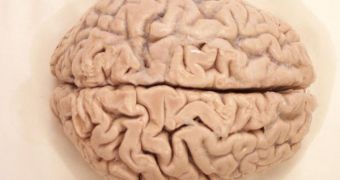Just like a computer chip, the processing power that the brain requires in order to cope with challenging tasks is extracted from all around the cortex, but recent research shows that the array of processes we usually call intelligence is generally hosted only in specific spots in the organ. In other words, this is not a trait that is spread around the cortex, but rather only in several smaller nuclei. For the new experiment, scientists have used magnetic resonance imaging (MRI) and computerized-tomography (CT) machines, in order to map the brain activity of test subjects taking IQ tests.
These types of tests remain the most widely-used, intelligence-assessment methods in the world, mainly because they offer a good insight into the mind of the individual taking them. Granted, the system is not perfect, and it can be flawed or deceived, but it still remains highly effective in most cases. While filling out these forms and questionnaires, participants in the new study were hooked up to MRI and CT machines, which recorded the levels of cortex activity their brains exhibited when confronted with the harder versions of the test.
All of the 241 people who were part of the study were neurological patients, having suffered such shocks as strokes, tumors, resections and traumas. The researchers then “broke” the IQ tests in their basic components. Each of these questionnaires sought to assess one of a person's four intelligence indices, including verbal comprehension, perceptual organization (as in visual and spatial processing), working memory, and processing speed. By combining these data, those correcting the IQ tests could easily determine someone's IQ.
For each of these four indices, the experts analyzed via CT and MRI images of the way in which certain areas of the brain “lit.” And because some of the patients had suffered some kind of trauma in those regions, the science team found it easy to determine which were responsible for which of the four components of intelligence.
“The first question we asked was if there are any parts of the brain that are critically important for these indices or if they are very distributed, with intelligence processed globally in a way that can't be mapped,” Caltech neuroscientist Ralph Adolphs, a member of the study team, said.
The results revealed, for example, that the processes associated with two different IQ indices, verbal comprehension and working memory, were actually “directed” by a single portion of the brain, even though they were considered to be two distinct traits of intelligence. “It wouldn't be sufficient to be diagnostic, but it would provide information that clinicians could definitely use about what parts of the brain are dysfunctional,” Adolphs concluded.

 14 DAY TRIAL //
14 DAY TRIAL //